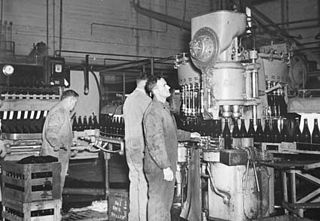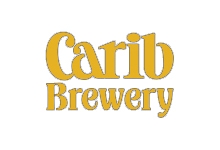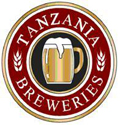Related Research Articles

An alcopop is any of certain mixed alcoholic beverages with relatively low alcohol content, including:
- Malt beverages to which various fruit juices or other flavorings have been added
- Wine coolers: beverages containing wine to which ingredients such as fruit juice or other flavorings have been added
- Mixed drinks containing distilled alcohol and sweet liquids such as fruit juices or other flavourings

Beer is an alcoholic beverage produced by the brewing and fermentation of starches from cereal grains—most commonly malted barley, although wheat, maize (corn), rice, and oats are also used. The fermentation of the starch sugars in the wort produces ethanol and carbonation in the beer. Beer is one of the oldest alcoholic drinks in the world, the most widely consumed, and the third most popular drink after water and tea. Most modern beer is brewed with hops, which add bitterness and other flavours and act as a natural preservative and stabilising agent. Other flavouring agents, such as gruit, herbs, or fruits, may be included or used instead of hops. In commercial brewing, natural carbonation is often replaced with forced carbonation.

Low-alcohol beer is beer with little or no alcohol by volume that aims to reproduce the taste of beer while eliminating or reducing the inebriating effect, carbohydrates, and calories of regular alcoholic brews. Low-alcohol beers can come in different beer styles such as lagers, stouts, and ales. Low-alcohol beer is also known as light beer, non-alcoholic beer, small beer, small ale, or near-beer.

The Miller Brewing Company is an American brewery and beer company in Milwaukee, Wisconsin. It was founded in 1855 by Frederick Miller. Molson Coors acquired the full global brand portfolio of Miller Brewing Company in 2016, and operates the Miller Brewery at the site of the original Miller Brewing Company complex.

Foster's Group Pty. Ltd. was an Australian beer group with interests in brewing and soft drinks, known for Foster's Lager, now called Carlton & United Breweries since the company was renamed in 2011. Foster's was founded in 1888 in Melbourne, Victoria by two American brothers, who sold the brewery a year later.

Nigerian Breweries Plc, is the largest brewing company in Nigeria. It serves the Nigerian market and West Africa.

Beer was introduced to Canada by European settlers in the seventeenth century. The first commercial brewery was La Brasseries du Roy started by New France Intendant Jean Talon, in Québec City in 1668. Many commercial brewers thrived until prohibition in Canada. The provincial and federal governments' attempt to eliminate "intoxicating" beverages led to the closing of nearly three quarters of breweries between 1878 and 1928. It was only in the second half of the twentieth century that a significant number of new breweries opened up. The Canadian beer industry now plays an important role in Canadian identity, although globalization of the brewing industry has seen the major players in Canada acquired by or merged with foreign companies, notably its three largest beer producers: Labatt, Molson and Sleeman. The result is that Moosehead, with an estimated 3.8 percent share of the domestic market in 2016, has become the largest fully Canadian-owned brewer.

Anadolu Efes Biracılık ve Malt Sanayii A.Ş. produces and markets beer and malt and non-alcoholic beverages in a wide geographical area comprising Turkey, the United States, Russia, the Commonwealth of Independent States (CIS), Europe, Central Asia and the Middle East. Anadolu Efes is a member of the Anadolu Group. Anadolu Group was founded in 1950 by the Özilhan and Yazıcı families. Exhibiting a rapid and sustainable growth since its inception, the Anadolu Group transformed into a holding company in 1969.

Beer arrived in Australia at the beginning of British colonisation. In 2004 Australia was ranked fourth internationally in per capita beer consumption, at around 110 litres per year; although, the nation ranked considerably lower in a World Health Organization report of alcohol consumption per capita of 12.2 litres. Lager is by far the most popular type of beer consumed in Australia.

In the United States, beer is manufactured in breweries which range in size from industry giants to brew pubs and microbreweries. The United States produced 196 million barrels (23.0 GL) of beer in 2012, and consumes roughly 28 US gallons (110 L) of beer per capita annually. In 2011, the United States was ranked fifteenth in the world in per capita consumption, while total consumption was second only to China.

The Carib Brewery Limited is headquartered in Trinidad and Tobago. It produces Carib and Stag beers and a range of shandy products. The main brewery is located in Champs Fleurs, Trinidad, while Carib also has breweries in Saint Kitts and Nevis and Grenada, as well as a United States affiliate brewery in Cape Canaveral, Florida.
Beer in Africa, especially lager, is produced commercially in most African countries, and indigenous people also make varieties of beer. Beer is served in various locales, from neighbourhood shebeens to upscale bars. Many countries have standardized beer bottle sizes, which are cleaned and re-used, so when buying beer at a store, people often must pay a deposit on the bottle and the price of the beer. An alternative to glass-bottle beers is local beer sold in tetra-pak style paper cartons.

Beer in Israel is manufactured primarily by two major breweries – Tempo Beer Industries and Israel Beer Breweries. Over the past decade numerous microbreweries have established themselves throughout the country. Beer festivals are held annually in Israel, of which one of the largest is in Jerusalem.

East African Breweries Limited, commonly referred to as EABL, is a Kenyan-based holding company that manufactures branded beer, spirits, and non-alcoholic beverages.

Krönleins Brewery is a Swedish brewery founded in 1836 by Anders Julius Appeltofft in Halmstad, Sweden.

The beers of the Caribbean are unique to each island in the region, although many are variants of the same style. Each island generally brews its own unique pale lager, the occasional stout, and often a non-alcoholic malta beverage. Contract-brewing of international beers is also common, with Heineken Pilsener and Guinness Foreign Extra Stout being the most popular. The beers vary between the islands to suit the taste and the brewing method used.

Lion is an alcoholic beverage company that operates in Australia and New Zealand, and a subsidiary of Japanese beverage conglomerate Kirin. It produces and markets a range of beer and cider in Australia, and wine in New Zealand and the United States through Distinguished Vineyards & Wine Partners. It acts as distributors for a range of spirits in New Zealand, but does not own any distilleries outright, although holding a 50% share of Four Pillars Gin in Victoria.

Tanzania Breweries Limited, also referred to as TBL, is the oldest and largest brewing company in Tanzania.
Tabitha Mukami Muigai Karanja is a Kenyan businesswoman, entrepreneur, industrialist and Nakuru County Senator. She is the founder and current chief executive officer of Keroche Breweries, the first large brewery in Kenya owned by a non-multinational company. Keroche Breweries accounts for 20% of Kenya's beer consumption, as of October 2012.

Beer and alcohol is an integral part of Tanzanian society and local brands hold a strong sense of national pride among the Tanzanian population. There is a considerable amount of brewing and drinking done in the country. Tanzania ranks 6th in Africa for beer consumption and contributes to over 3% of the African consumption. However, over 90% of the national consumption is either homemade or from the informal sector. Bottled beer is expensive for the majority of the population and is almost 6 times more expensive than the maize beers. Nonetheless, beer sales and taxes are a vital part of the Tanzanian economy.
References
- ↑ "Home grown Keroche cries foul in tax battle with KRA". The Star.
- ↑ "Home grown Keroche cries foul in tax battle with KRA". the-star.co.ke. Retrieved 2020-05-07.
- ↑ Duncan Miriri (3 March 2015). "Kenya's Keroche Breweries eyes market share surge to 20 percent". Reuters. Retrieved 2020-05-07.
- ↑ "Our Products". Keroche Breweries. Retrieved 2020-05-07.
- ↑ "Tabitha Karanja on humble beginnings, challenges, success and family". November 23, 2014.
- 1 2 3 4 "Keroche, Fai Amario and how Naivasha became paradise for moonshine brewers - Daily Nation". www.nation.co.ke. Archived from the original on 1 September 2019. Retrieved 14 January 2022.
- 1 2 Miriri, Duncan (March 3, 2015). "Kenya's Keroche Breweries eyes market share surge to 20 percent". Reuters– via www.reuters.com.
- ↑ "Kenya: Traders Lose Sh300m to Ban On Sachet Packaging". allafrica.com. 15 May 2005. Retrieved 2021-01-17.
- 1 2 August 29, 2019, Thursday. "Keroche boss has always had beer, woes brewing in one pot". Business Daily.
{{cite web}}: CS1 maint: numeric names: authors list (link) - ↑ "Summit Lager – Keroche Breweries".
- ↑ Tanni Deb and Earl Nurse (March 2017). "Competition increases in Kenya's beer industry". CNN.
- ↑ "Livelihoods at stake in Keroche's tough call to raise Sh500m - Daily Nation". www.nation.co.ke. Archived from the original on 15 April 2020. Retrieved 14 January 2022.
- ↑ Africa, Forbes Woman (October 1, 2014). "The Iron Lady Of Beer".
- ↑ Kangethe, Kennedy (March 31, 2015). "Keroche brewery opens Sh5.5bn production line".
- ↑ "Keroche says its continued innovation benefiting farmers and creating jobs". July 30, 2019.
- ↑ Gitonga, Antony. "Keroche stirs up rivalry with new beer". The Standard. Retrieved 2020-05-26.
- ↑ "MILESTONE". March 3, 2016.
- ↑ Reporter, Business Beat. "Keroche boss Tabitha Karanja wins continental award". The Standard. Retrieved 2020-05-26.
{{cite web}}:|first=has generic name (help) - ↑ "Tabitha Karanja recognised by the 2015 Africa Awards for Entrepreneurs for her transformational socio-economic impact in Africa". Lionesses of Africa. Retrieved 2020-05-26.
- ↑ "Tabitha Karanja: The woman who has faced off with multinationals". The Star.
- ↑ "Miscellaneous Civil Application 265 of 2016 - Kenya Law". kenyalaw.org. Retrieved 2020-05-26.
- ↑ Gitonga, Antony. "Keroche breweries woes started in 2003". Standard Entertainment and Lifestyle.
- ↑ "Kenya: Keroche Drinks Did Not Pass Kebs Inspection - Minister". allafrica.com. 10 April 2003. Retrieved 2021-01-17.
- ↑ February 01 2016, Monday. "Kebs takes permits war with Keroche to Court of Appeal". Business Daily.
{{cite web}}: CS1 maint: numeric names: authors list (link) - ↑ "Keroche Breweries reopened after court order". Citizentv.co.ke. 29 July 2015.
- ↑ "Keroche Breweries owners charged with tax evasion - Daily Nation". www.nation.co.ke. Archived from the original on 23 August 2019. Retrieved 14 January 2022.
- ↑ "Keroche loses Sh9bn tax dispute against KRA". The Star.
- 1 2 Kamau, John (28 June 2020). "Keroche, Fai Amario and how Naivasha became paradise for moonshine brewers". Nation . Retrieved 3 September 2024.
- ↑ "The female Kenyan brewer taking on a global drinks giant". BBC News. May 3, 2015.
- 1 2 January 01 2020, Wednesday. "EABL, Keroche court fight over bottles deepens". Business Daily.
{{cite web}}: CS1 maint: numeric names: authors list (link) - ↑ "Brewers bring beer fight to East Africa". The East African. 23 July 2020.
- ↑ "Euro bottle war: Kenyans weigh in on EABL vs Keroche fight". www.msn.com.